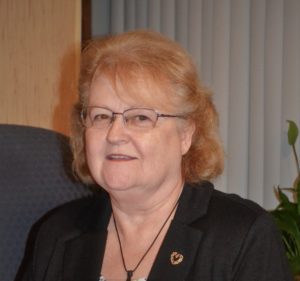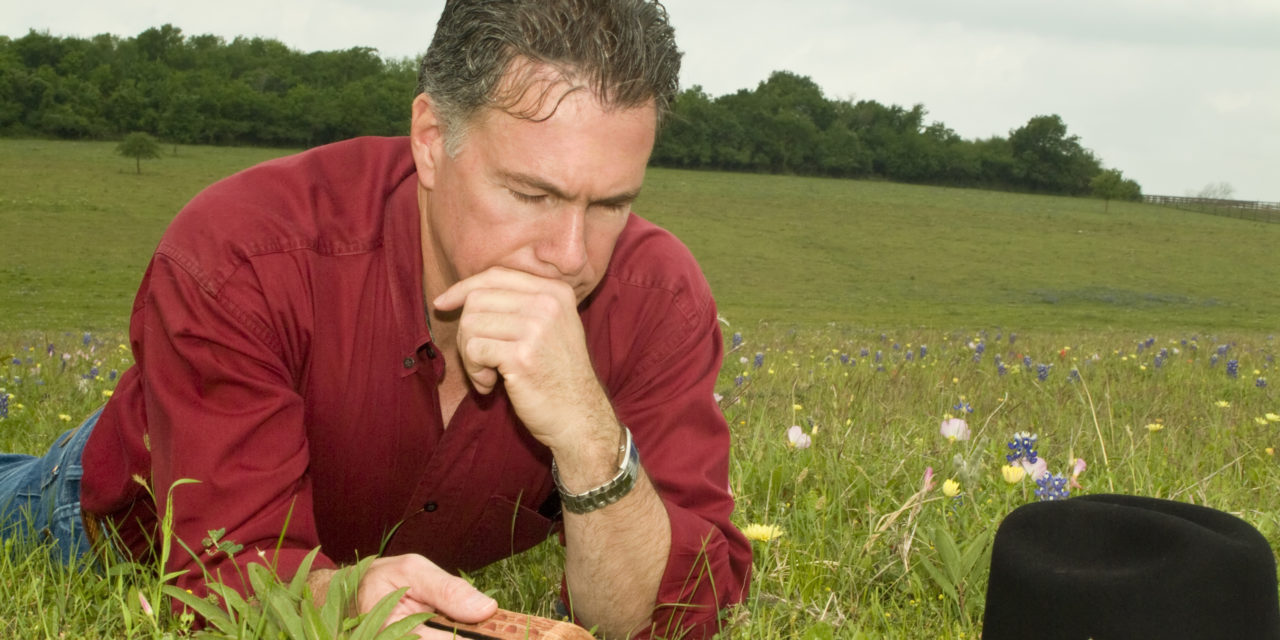Witness of Scripture
By Glenda Ward
McDowell County
Believeth: To adhere to, committal to, faith in, reliance upon, trust in a person, and this involves not only the consent of the mind but an act of the heart and willingness of the person.
“Whosoever believeth in Him” is equivalent to whosoever trusts in or commits themselves to Christ. Belief is faith which consists of believing and receiving what God has revealed.
“He that believeth on the Son hath everlasting life.” Everlasting life is not only a future hope but the present possession of everyone who believes in Salvation through Christ Jesus.
The story of The Woman at the Well is a well-known story in the Bible; many Christians can easily summarize this story. On the surface, the story chronicles morality, preconceived ideas, and a woman who was avoided or shunned by her community. In Scripture, she is described as the Samaritan woman. She is not named but is identified by her nationality. But to take a deeper look, we realize it reveals a great deal about Jesus’ character. Jesus is a master teacher and He taught in a variety of ways. He spoke frequently to the multitudes, He also spent considerable time giving kindly attention to individuals in one-on-one situations. In this, we should follow His example.
Jesus’ conversation with the Samaritan woman at the well is told in the Book of John chapter 4. The Samaritans had once been Jews. They knew about the coming Messiah. They knew Jewish law. But they had intermarried with people of other faiths that had brought new gods into their land, and as a result, they knew that they would be excluded when the Messiah came.
The story falls into three major segments:
- Why the Lord happened to be passing through Samaria.
- The actual exchange between Jesus and the Samaritan woman.
- The effect that ultimately was produced as a result of this encounter.
The Lord’s travels were meticulously structured to enhance the greatest advantage for the success of His coming Kingdom. The timing was of importance, for everything must proceed on schedule to that most important hour. Jesus’ ministry had been very successful and because of His success, the Pharisees were beginning to focus on a more hostile interest in Him. So, Jesus redirected His labor from Judea in the south, to Galilee in the north. Samaria lies between Judea and Galilee, so passing through Samaria was not the only route and was not the most common one used. Samaria was not considered as belonging to the Holy Land. It was considered a strip of “foreign country” separating Judea from Galilee in which taking this route would take longer than the normal three days of travel. However, Jesus did not hesitate to trod the Samaritan territory. It is in His timing that several happenings are in order.
Jesus and His disciples leave Judaea and go into Galilee passing into Samaria, coming to a city called Sychar which was near the parcel of land that Jacob gave to his son Joseph. Now, Jesus on His journey came to Jacob’s well, and being tired from His travel sat down on the wall at the well at about the sixth hour while His disciples went into the village about a half-hour away, to buy food. [In His humanity Jesus experienced the same physical limitations that all humans experience.]
While Jesus is at the well a woman of Samaria came to draw water. Jesus said to her, “Give me to drink”. And knowing the Jews have no dealings with the Samaritans, the woman asks Jesus why He asks for a drink from her, a woman of Samaria. Jesus answers this woman in John chapter 4 verse 10. Three things are significant about Jesus’ encounter with this Samaritan woman. First, she was a Samaritan, and Jews had no dealings with Samaritans. Second, she was a woman and Jesus spoke to her despite the fact. Jewish men did not speak to women in public. Third, Jesus asked for her to get Him a drink of water, although using her cup or dipper would have made Him ceremonially unclean. The most common view to the origin of the Samaritans is they were of a mixed-race who developed as a result of intermarriages and other pagans who eventually infiltrated the land mingling with them. There was much animosity between Jews and the Samaritans. Given her heritage, this Samaritan woman was not a stranger to Jewish teachings, which said that there would be a Messiah who would come and save His people. But she was not a Jew, and so salvation would not be coming for to. At least, that is what she thought until that day when Jesus spoke to her.
Jesus told her of all the things going on in her life. Jesus’ behavior was shocking to this woman at the well. The stranger had exposed details of her life He could not possibly have known naturally. This woman began to realize this man was not like other Jewish men. How did He know so much about her? In John chapter 4 verse 13 and 14 Jesus goes on to tell her about the living water and everlasting life. Jesus spoke of the “free gift” of “living water” that bestows life such that she would never thirst again. Jesus used the word living water to refer to eternal life, the gift that would satisfy her soul’s desire was only available through Him. As the woman began to grasp the reality of her encounter with Jesus, she makes a statement in John chapter 4 verse 25. Jesus says unto her, “I that speak unto thee am He”. “The woman then left her waterpot, and went her way into the city, and saith to the men, Come, see a man, which told me all things that ever I did: is not this the Christ?” The woman’s testimony to the citizens of the community was compelling. She claimed to have met a man “who told her of all things that ever she did”. This was a strong suggestion of Jesus’s supernatural nature. Her careful choice of words produced the exact response for which she hoped. The people of Sychar departed from the city and made their way to find Jesus.
From verse thirty-five we can figure that it is December or January on the occasion of His journey (since the harvest occurs in April-May). Jesus says to his disciples, you are saying, “There are yet four months, and then cometh harvest?” “I say unto you, Lift up your eyes, (perhaps beckoning toward a multitude of people approaching down the road; the human crop, who, even now, are ripe for harvest.”), and look on the fields; for they are white already to harvest.”
Many of the Samaritans believed in Him for the saying of the woman which testified. The Samaritans came to Him, they besought Him that He would stay with them two more days. Jesus stayed two more days in Sychar teaching the people of the community. The outcast Samaritans recognized Him and accepted Him for who he truly was, the Lord and Savior.
What took place that day has everything to do with timing. Most women didn’t go to draw water in the heat of the day. They usually went in the morning when it was cool. But this woman went out in the middle of the day when she perhaps expected no one else to be there, and that is exactly when Jesus met her. At the beginning of time, God already knew the outcome, and as she went to the well in the middle of her ordinary day, perhaps He smiled, thinking, I have been waiting for you! He must have been filled with joy knowing that she was about to discover the only One who could satisfy her heart and give her True Hope. He was just sitting on the wall of the well, waiting …at the exact place she would be …at the exact time she would be there …just to have an encounter with her. Today we can know that He does the same for us. He sees us coming. He knows everything about us, and He loves us just as we are. Sometimes, the busyness of our day keeps us from looking for Him, but He is waiting for us. And when you encounter Jesus, your heart will learn the gentleness of His voice, and it will be impossible to miss His presence again. He positions Himself in our life so we can meet Him face to face just when we need Him the most. He is with us always.
________________________________________________________________________________
Glenda Ward is a member of Grand View Baptist Church in McDowell County. She is the mother of five grown children. Glenda is a Christian writer/author of “Something to Think About” – weekly Christian Articles. She writes Church Programs & Bulletins, VBS Material, Christmas and Easter Programs; all material based on the KJV of the Bible. Also testing the field in tributes, individual memorial writings, etc.
Read more from Glenda Ward HERE
________________________________________________________________________________






